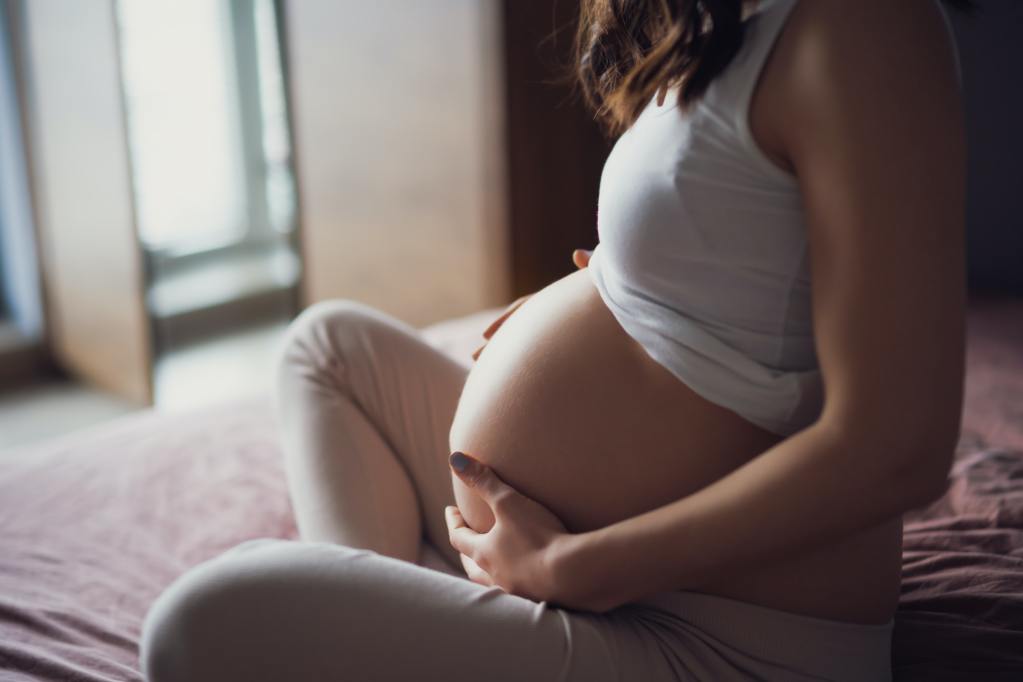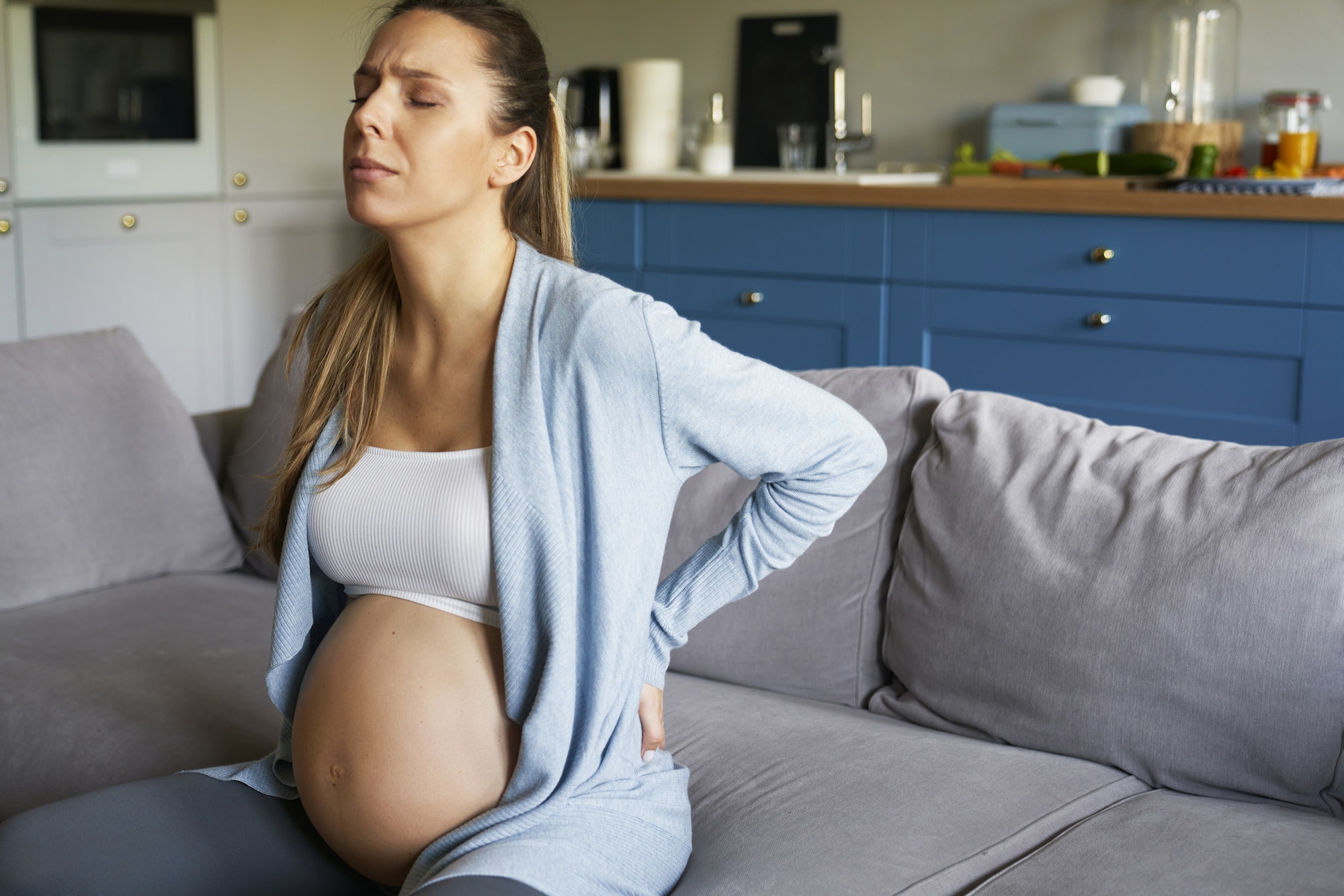My very first experience with kidney stones was less than three weeks postpartum with my second baby. Never in my life had I developed kidney stones prior to then – and that “round” of kidney stones lasted about a month. Then, for almost a year, I was kidney-stone-free. Cut to now, pregnant with my third, and I’ve developed three kidney stones during pregnancy… over the course of one month.
Kidney stones during pregnancy aren’t the most surprising thing to happen. We already have heat-flashes, UTI’s, nausea, rashes, food aversions – you name it, it’s probably a possible symptom of pregnancy. Most women who develop kidney stones have had them before, but it’s not impossible for women to develop them during pregnancy (with no prior history) and pass them soon postpartum.
What Are Kidney Stones?
Kidney stones are small crystallized masses that form in the kidneys or the tubes connecting to your kidneys (your ureters). Kidney stones are typically made from calcium but can also be formed of uric acid, struvite, and cystine. Most kidney stones are about the size of a pea – although they can be the size of a golf ball – and can be smoothed or jagged.
Small kidney stones are what you hear people “passing” while peeing, larger stones require a different treatment. These are typically broken up in the kidney to be safely passed later, or removed via surgery.
What Causes Kidney Stones During Pregnancy?
Kidney stones occur in 1 out of every 250-1,500 pregnancies and primarily during the second and third trimester – like in my situation, when kidney stones popped up right when I hit the third trimester. Your risk of kidney stones actually remains pretty high for the first year postpartum, and remains slightly elevated after that.
Kidney stones are caused by the changes pregnancy does to your body, such as bladder compression and an increase in the progesterone hormone. Additionally, pregnancy brings increased calcium and urine pH – primary causes of kidney stones.
4 Common Symptoms of Kidney Stones
Kidney stones have very particular symptoms that you can look out for – although having some of these symptoms does not guarantee that what you’re experiencing is kidney stones. Here are four of the most common symptoms of kidney stones:
- Pain while peeing. What can start as a dull pain and build up to a sharp pain that causes peeing to be very painful.
- Back and/or abdominal pain. This is a mostly dull pain vs. unbearable pain, still it can become very uncomfortable when passing kidney stones. It can also be extreme depending on the size of kidney stone you’re passing.
- Blood in your pee. If your pee is turning pink or red, it’s likely that you’re either dealing with a UTI (which can be caused by kidney stones) or by having kidney stones.
- Nausea/vomiting. It’s hard to tell with just this symptom thanks to it being a pretty common one during pregnancy.
Do Kidney Stones Cause Pregnancy Complications?
Yep! Kidney stones are the reason that I developed preeclampsia and delivered three weeks early with my second. Even if you haven’t passed your kidney stone they can cause your body to develop complications beforehand. Preeclampsia isn’t the only complication you can develop. You can also get repeat urinary tract infections or UTIs.
While kidney stones don’t directly cause miscarriage, when left untreated they can cause health complications that can lead to miscarriage or further health complications.
How Are Kidney Stones Treated During Pregnancy?
Most small kidney stones will actually be passed naturally. Although painful, they’ll come out as you pee. If the kidney stones are larger, your doctor may prescribe medication, determine if you need to break the stones up using sound waves, go through surgery, or do a scope procedure.
During pregnancy, some of your treatment options may be limited. Therefore, your doctor may recommend changing your diet or drinking more water – pushing fluids – to help clear out your system, break up your kidney stones, and let them “run their course.”

Can You Prevent Kidney Stones?
Because so much depends on the individual and the changes your body is experiencing, there’s no sure fire way to prevent kidney stones. There are, however, ways to lower the risk of kidney stones during pregnancy. According to Mayo Clinic, during pregnancy you should include high fluid intake and a low-salt diet. Mayo Clinic experts also recommend appropriate calcium intake during pregnancy of at least 1,000 milligrams per day, preferably from dietary sources such as dairy products rather than calcium supplements.
It’s also recommended that you drink enough to “keep your pee clear” as darker pee indicates a bladder/kidney environment that is more likely to develop kidney stones. Adding fresh lemon juice and avoiding fizzy drinks can also help.
What it’s Really Like to Have Kidney Stones During Pregnancy…
There’s no brave face coming from me, kidney stones are a PAIN. They have caused constant discomfort and repeated UTIs – both of which are not welcome during my last three months of pregnancy. For over a month, I’ve had to pass kidney stones and treat UTIs, leading to less sleep and more pee. To say that it disrupted my day is an understatement.
When you’re already counting down the days until birth – and stressing about developing preeclampsia again – kidney stones are one of the pregnancy developments I was hoping to avoid this go round.
Did you experience kidney stones while pregnant or postpartum? Let me know in the comments below!


